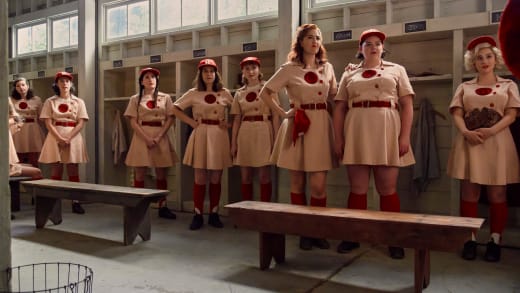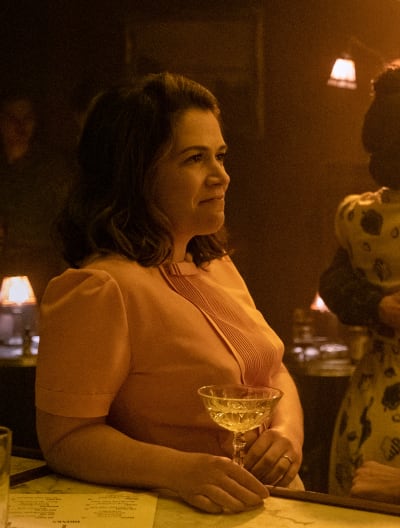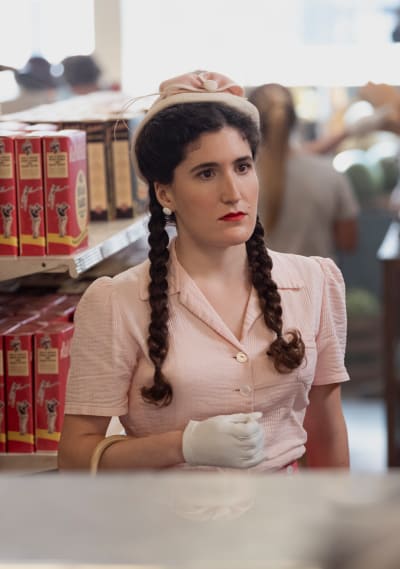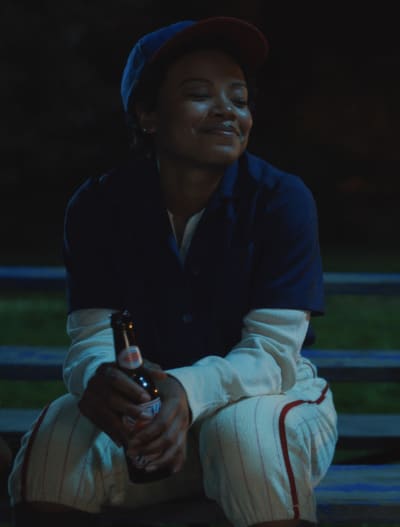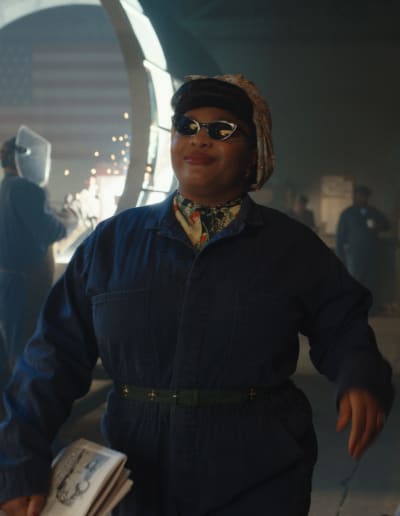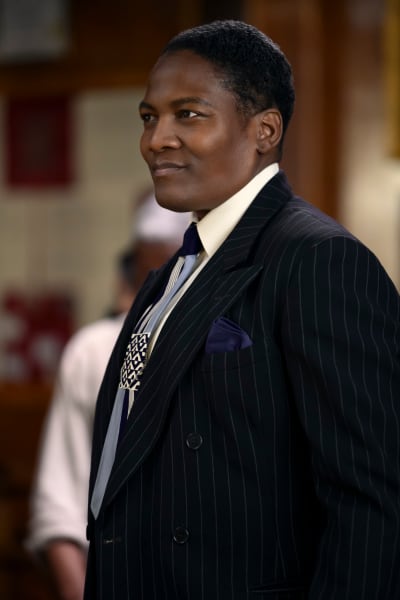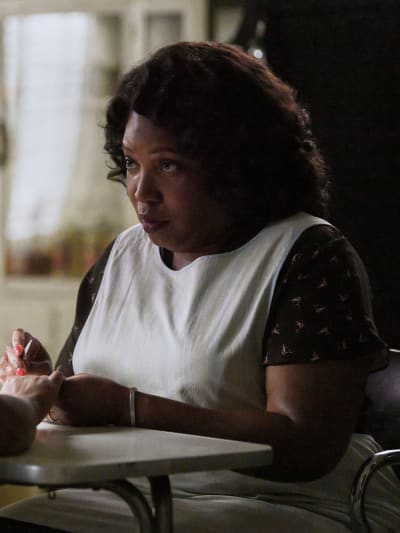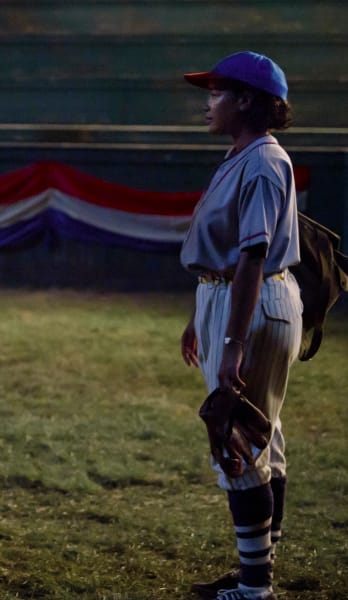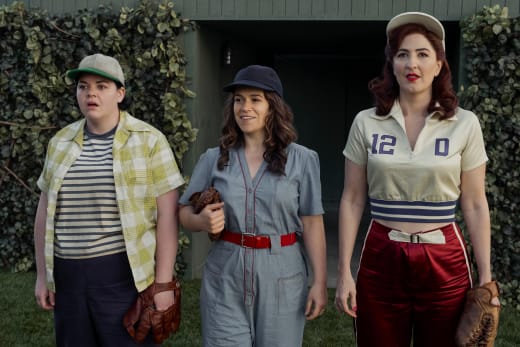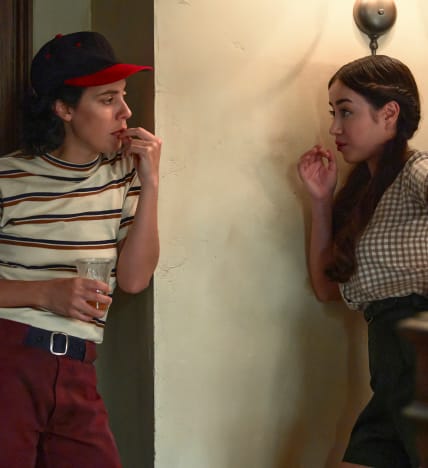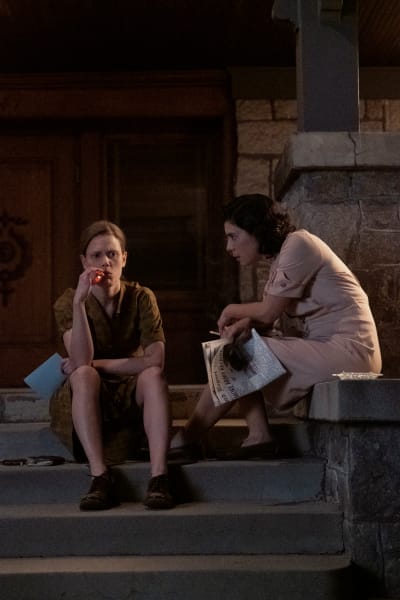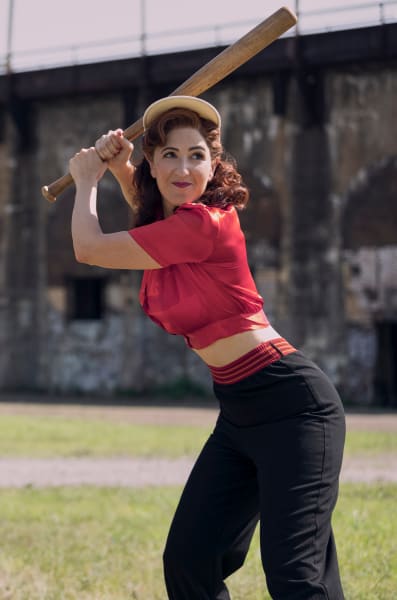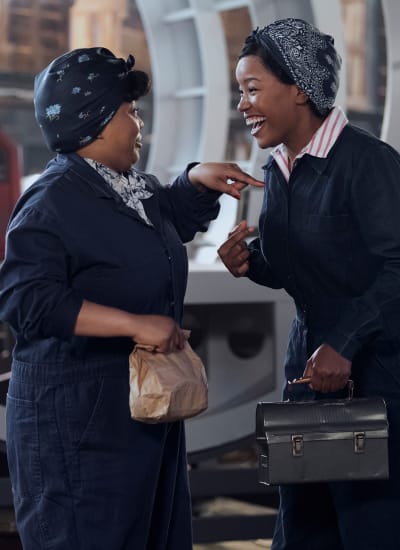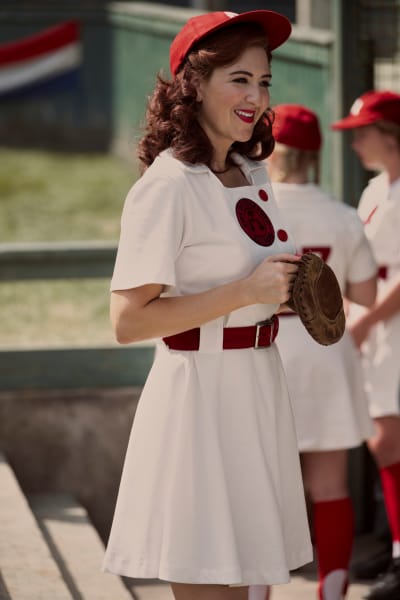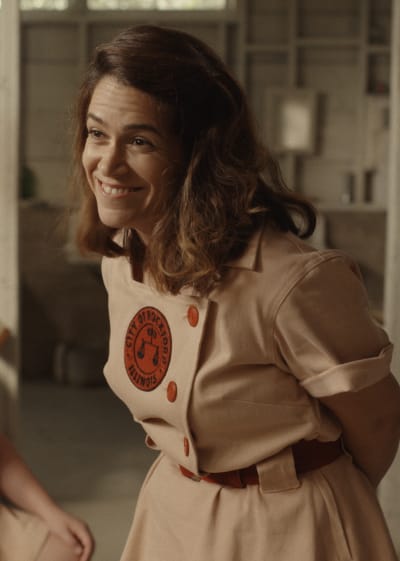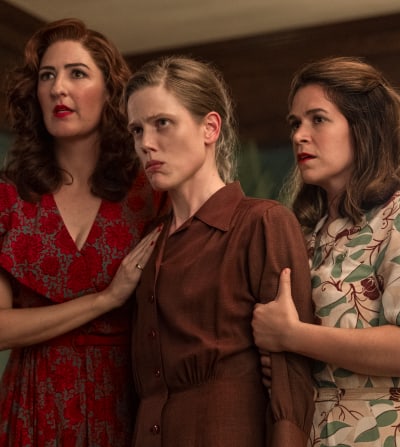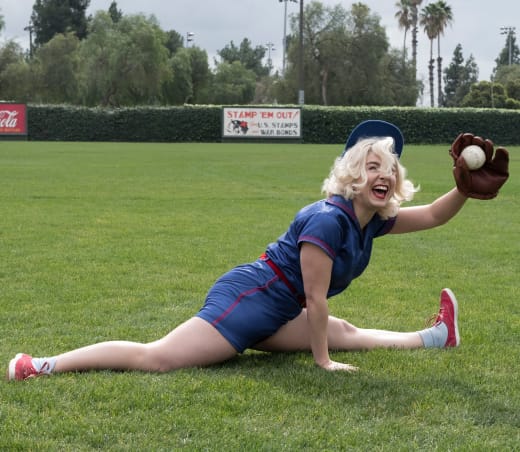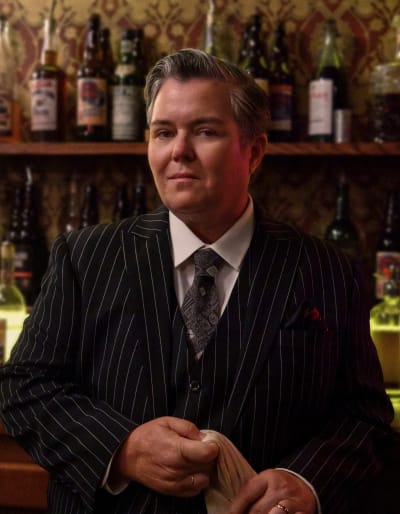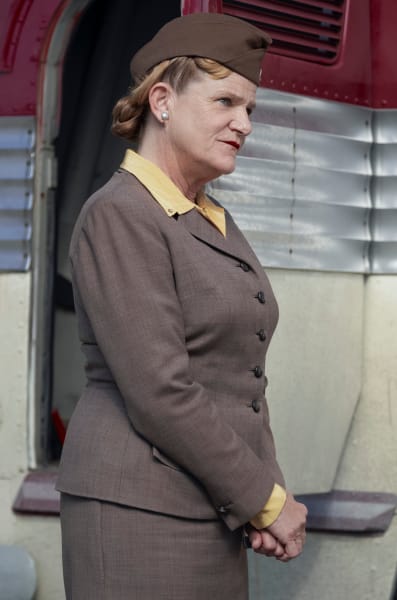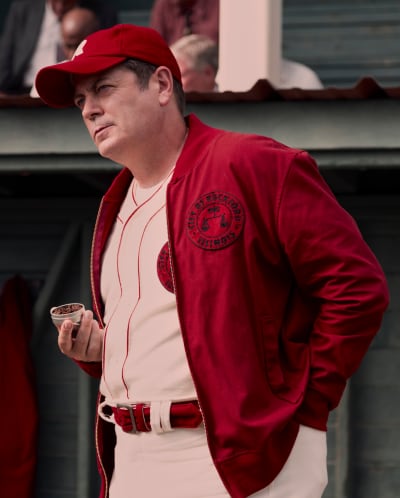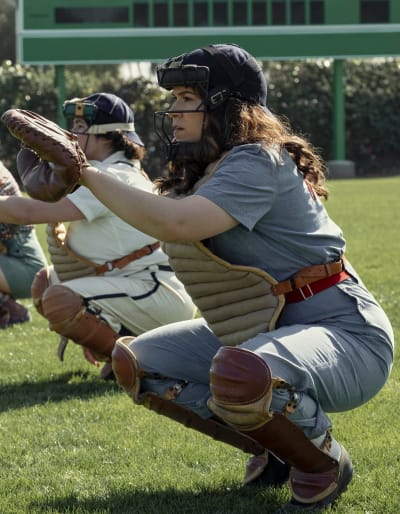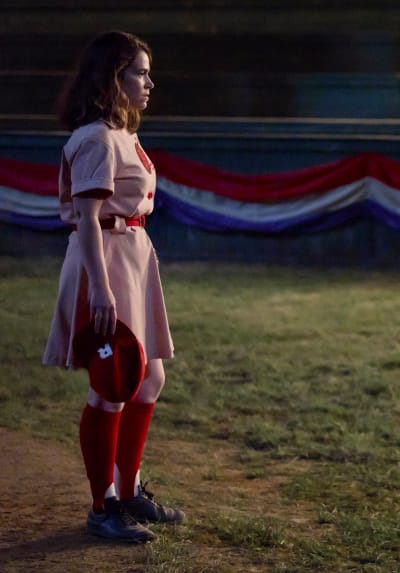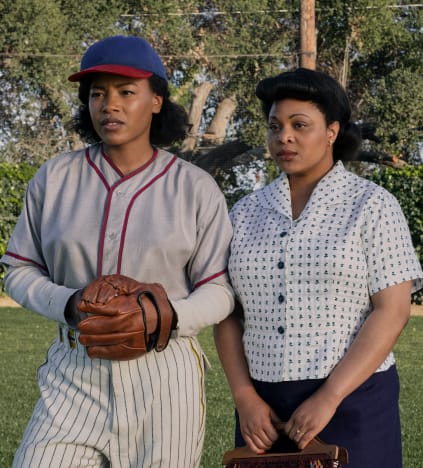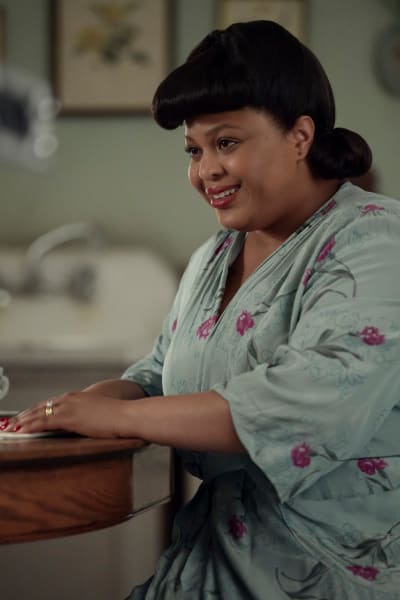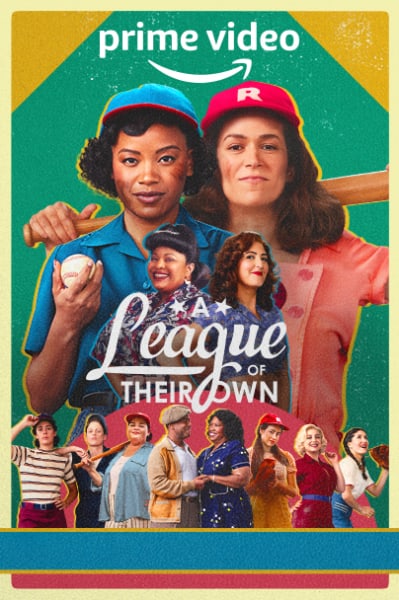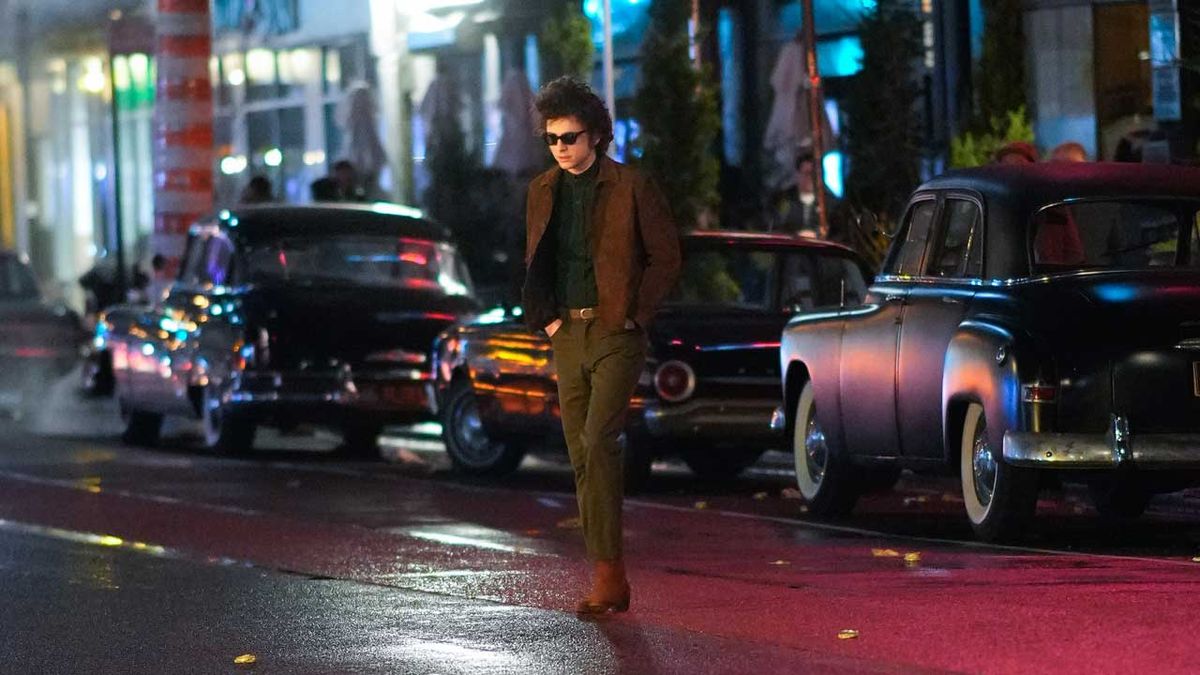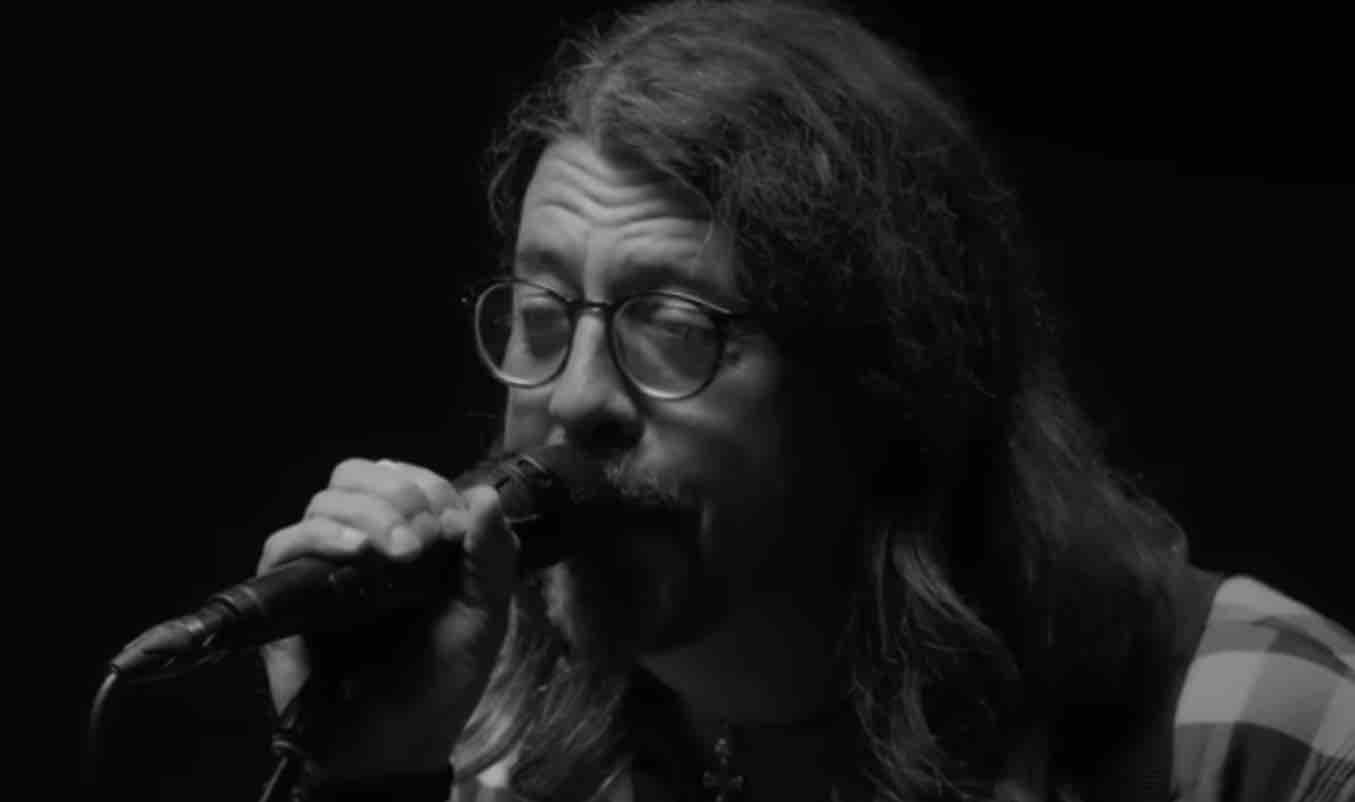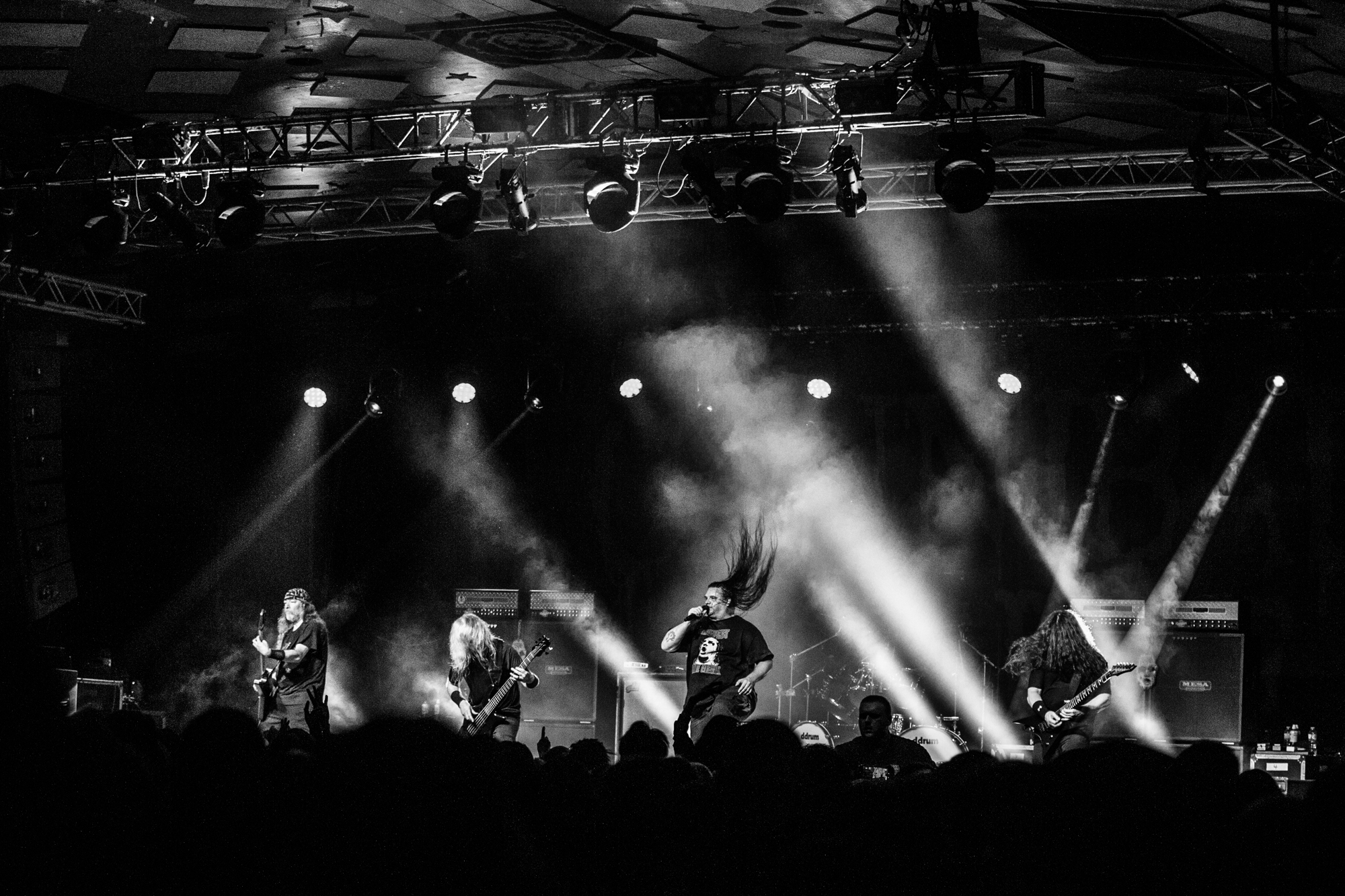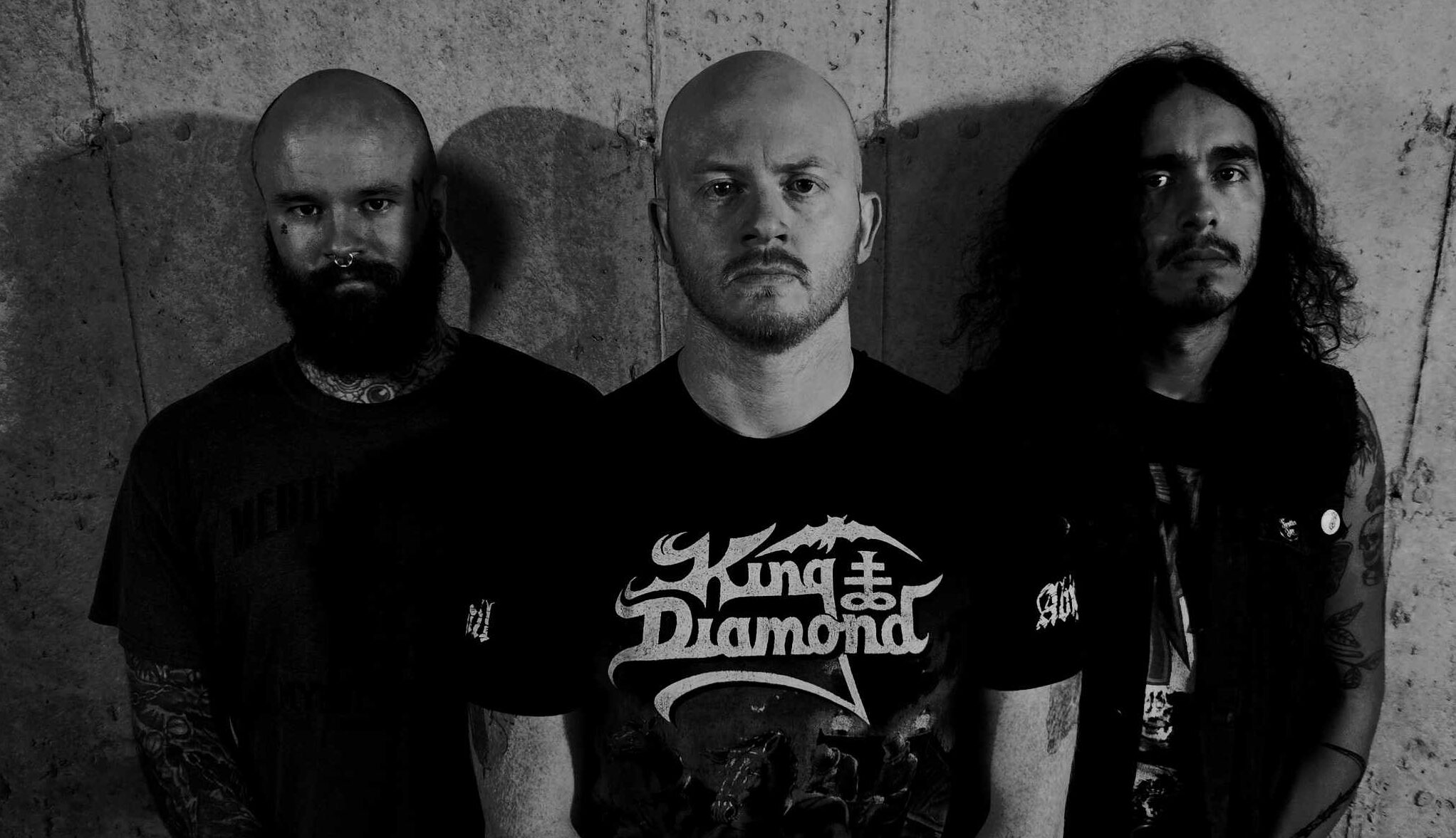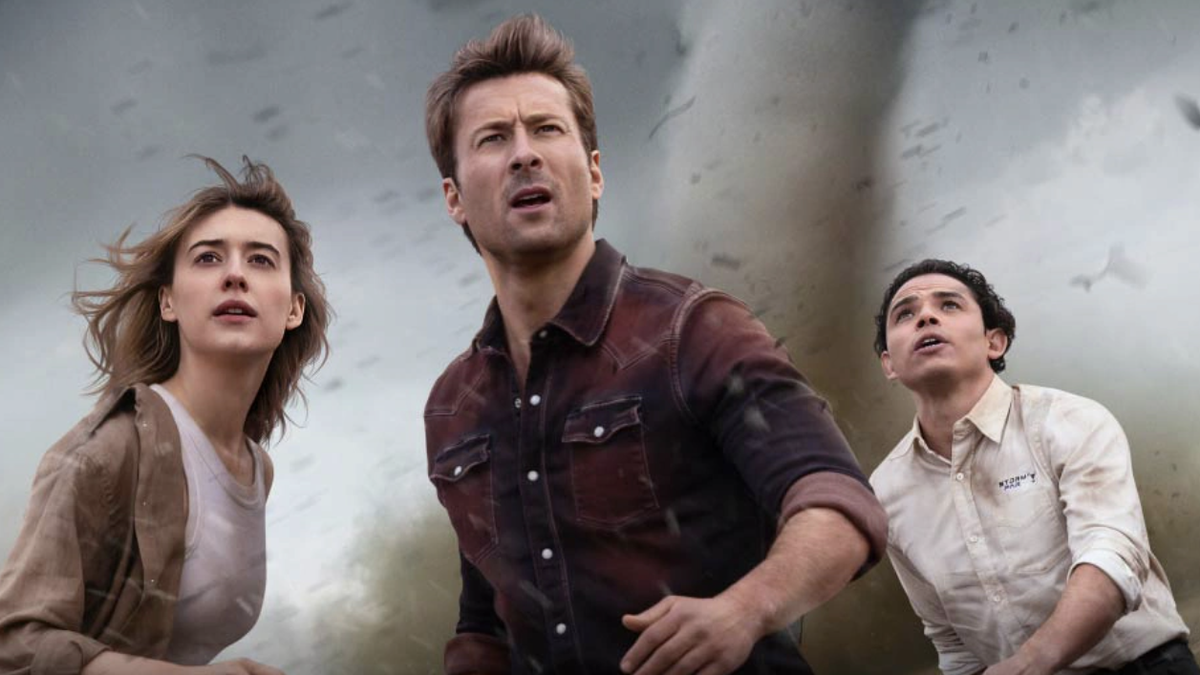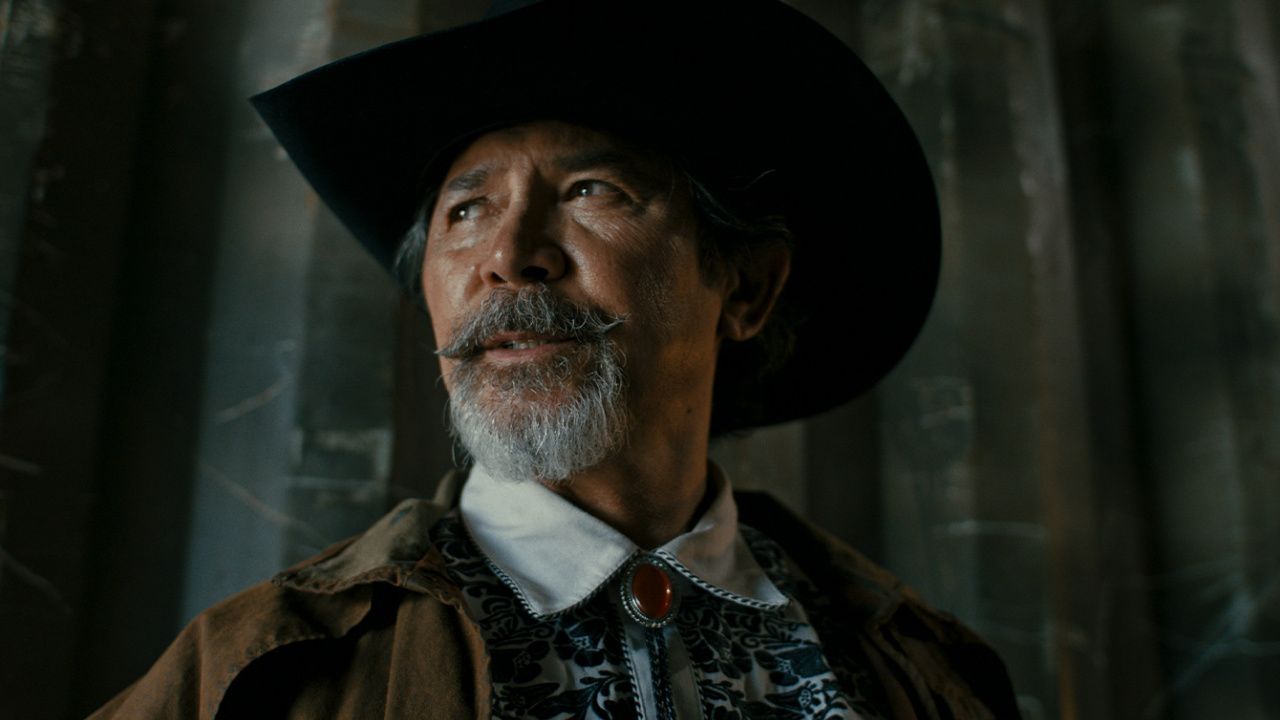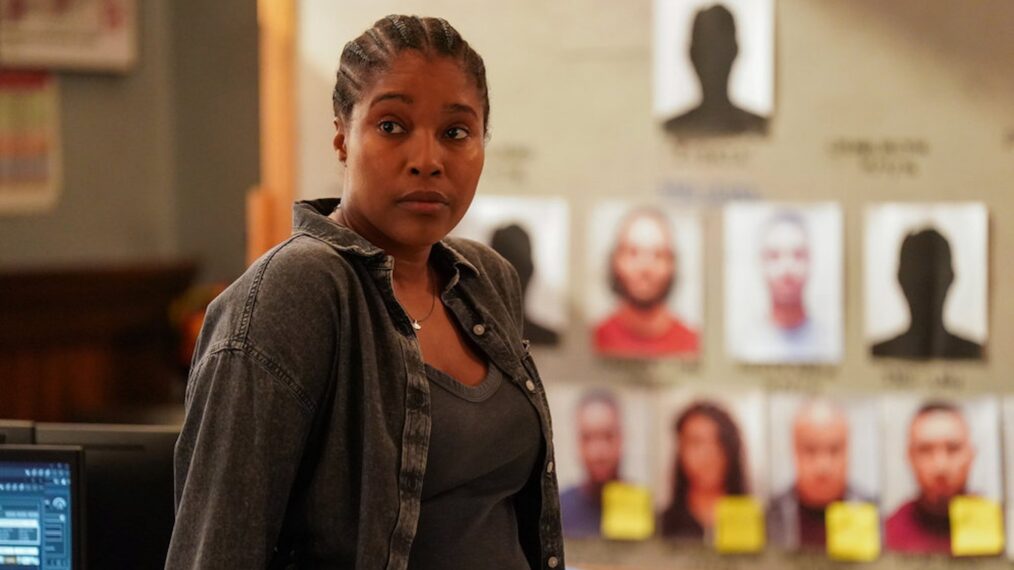
Penny Marshall’s iconic film about the All-American Girls Professional Baseball League (AAGPBL) was a box office smash when it came out in 1992. In 2012, it was preserved by the National Film Industry for being “culturally significant.”
Thankfully this reboot, or re-imagining as the creators like to call it, builds upon the core themes and expands to include a broader range of characters.
There are plenty of nods to the film, but this new series allows the players room to breathe, giving them more rich and complex identities instead of tokenizing them.
This time there are queer characters, something that represents the AAGPBL players more authentically instead of straight-washing (even though these characters are fictional). Not only that, but there are Black and Latina characters, which were sorely lacking in the original.
As much as the original film is a product of its time (1992 was 30 years ago!), so is the series.
Cinematically, it feels right. The costumes and set pieces are all appropriate. The sepia-ish cinematography fits the setting.
It seems a prerequisite for all films and shows set in the 1940s to have a scene set to Louis Prima’s “Sing, Sing, Sing,” so that’s in there, too.
The baseball sequences are great, and you don’t have to understand all the ins and outs of the game to enjoy them. The actors are having a ball. (All the puns intended.)
However, the series is more about the characters learning about themselves and growing against the backdrop of the sport rather than the sport itself.
Did I mention it’s funny? There’s plenty of humor, often playing off the chemistry between the performers, letting them have fun together.
It’s sexy, too, but even the sex scenes don’t feel overly explicit. That being said, it’s not exactly family-friendly fare — the language is consistently foul, which is very different from the movie but probably more true to life.
The actors are all terrific, letting loose with the comedy when it calls for it and dialing it down when things get serious. It’s an ensemble cast; everyone shares the screen and elevates their scene partners.
Our anchors are Abbi Jacobson as Carson Shaw and Chanté Adams as Max Chapman. Jacobson (also Co-Creator/Executive Producer) has a bright-eyed wonder as Carson, bringing levity even when things feel their heaviest.
Adams has such determination and joy as Max, who can be hyperfocused to a fault, occasionally forgetting everything else around her. Both women have solid and satisfying arcs as the season, and their futures promise to be eventful if nothing else.
Everyone gets their moments, and hopefully, Season 2 will allow viewers to get to know those who were more relegated to the background in Season 1.
A League Of Their Own presents issues that are still relevant today, but it never feels inauthentic to the period. If it does, maybe that’s because these are stories we don’t see too often represented.
Yes, queer people existed “back then” — and they were Black, white, Hispanic, and all races.
Warning: the rest of this review contains spoilers for the entirety of Season 1 and the 1992 film.
One short but memorable scene in the original film is where a Black woman throws a ball back onto the field. Audiences loved that moment. She deserved her own plotline — even her own movie!
Unfortunately, Black women were not allowed in the AAGPBL, as it was informally segregated.
The series aims to correct that oversight in the defiant, headstrong Max. Not only is she a fantastic pitcher, but she’s queer, something she hides from her family and friends.
It’s only when she searches for her estranged aunt Bertie and finds her trans uncle Bertie (played by the fantastic Lea Robinson) and sees how he lives his life that Max realizes what is truly possible for herself.
One thing that was missing from the 1992 film that is present here is the mother-daughter dynamic.
Toni (Saidah Arrika Ekulona) only wants what’s best for her daughter and tries to set up a life where she knows she’ll be able to care for herself.
The revelation that she has known Max’s true identity all along, which was her reason for pushing this life of security on her daughter, makes sense.
Then there was the confirmation that Toni wasn’t mad at her brother for being trans (though she didn’t understand it) but was more upset that he left her. Toni is willing to learn and be better, but she prizes the safety of herself and her loved ones even if it means them being “out.”
She’s practical and has worked hard to create her best life, which Max understands and admires. When Toni and Max finally communicate their feelings, their relationship truly opens up.
Side note: Max’s post-sex face had me giggling. Whom amongst hasn’t wondered, “That’s it?” at some point in our sexual experience?
Disclaimer: One unsatisfying heterosexual encounter doesn’t mean you’re gay, and it probably isn’t the best idea to sleep with a man just to test a theory. But hey, it worked for Max!
As we see Max grow, make mistakes, and come to terms with what she’s capable of, she’s a joy to root for, and seeing her finally accomplish her dreams alongside a new love interest who mirrors her drive and passion is very satisfying.
How often do we see a queer Black woman get everything she’s ever wanted? She worked damn hard for it!
One line she said really stuck out that encompasses her struggle. Max says, “There’s no version of myself that makes sense for the world.”
You can’t help but think of all the people living today that still feel this way. If that sounds like you, just know there is a place for you in this world and a community that will embrace you, even if it can be hard to find.
In a world so hostile to the mere suggestion of queerness, seeing the support Max finds from her family and the unconditional love from her best friend is just so refreshing.
This is how it should be.
One of the strongest themes of the series is that of female friendship. There are many, and they are as varied and complex as the characters.
There’s Jo and Greta, Clance and Max, Carson and Max, Lupe and Esti, Lupe and Jess, Esther and Carson. There are so many representing different sexual identities and interpersonal dynamics based on who knows what about whom.
These relationships are wholesome without being cloying because it means so much for these women to share their passion and excel at something from which they’ve been held back.
The relationship between Lupe (Roberta Colindrez) and Esti (Priscilla Delgado) was very touching, and adding Jess (Kelly McCormack) into the mix solidified the three of them as a sweet little family.
Jess and Lupe become defacto parents to Esti, and the bombshell that Lupe had a daughter at 17 was a surprise!
The dynamic of this trio is engaging, but it also highlights how the three of them are outsiders — Mexican, Cuban, and Canadian. They were all asked to change part of themselves to fit in with the other Peaches.
Lupe had to pretend to be Spanish instead of Mexican, Esti was isolated due to the language barrier, and Jess was forced to conform to feminine “standards” that she eventually bucked at a detriment to her finances.
The scene in Episode 8 where chaperone Beverly (consistently solid character actress Dale Dickey) gives Jess back her fines was a nice touch. It strongly implied that Bev is also queer and that she loves her Peaches maternally and will look out for them.
Additionally, it was great to see a Canadian character (Jess) who was generally disagreeable and dry-humored with a hard veneer, breaking the pleasant and polite stereotype we always get saddled with!
Greta and Jo are another pair showcasing the uniqueness of a queer female friendship.
They care deeply for one another, protect each other, and support each other. They are traveling companions that share a passion for a sport and know each other inside and out.
D’Arcy Carden and Melanie Field beautifully convey this relationship’s depth, honoring the idea that family is not just about blood but can be something you find.
Greta and Carson both deal with their own baggage throughout the evolution of their relationship. It starts as a fling and then turns into something real and profound.
Greta is experienced, but Carson is just discovering this part of herself. Though they are intensely attracted physically, mentally, and emotionally, they both struggle to meet the other where they’re at, but in the end, they leave each other in a good place.
Max and her talented comic-artist friend, Clance (Gbemisola Ikumelo) are the heart of this series. These two have fantastic chemistry. Max and Clance have their ups and downs, and they’re very different.
Max is often so self-involved she forgets that Clance’s husband is going off to war. Yes, baseball is great, and she excels at it, but it doesn’t have to be her everything.
Clance is shown to be wildly talented at drawing, but it’s something she does just for herself. Max encourages her talents in the way Clance does for her.
Max eventually steps up for Clance when she needs it, helping her get a job at the factory and then helping her find a roommate. When Max leaves, the way Toni steps in to offer support to the newly pregnant Clance is touching.
Max and Carson’s secret friendship, which only developed after Max accidentally saw Greta and Carson kiss in Episode 1, was great.
Both knew they were treading on the wrong side of the law, but they still knew it was right. They could be there for each other in a way other friends perhaps couldn’t, to provide some kind of reality-checking, camaraderie, and different perspectives.
At first, the way the two leads (Carson and Max) treat men in their lives makes them difficult to root for. Carson is cheating on her husband, and Max uses Gary for sex.
However, things were decidedly different for queer people, as was apparent by the raid at the end of Episode 6.
It was considered a mental illness that could lead to institutionalization, violent “therapy,” and incarceration.
It was not safe to be openly queer, and these women had to find a way to navigate the world without any sense of direction.
It’s not an excuse, but it is refreshing to see multiple queer characters in one show that are allowed to be flawed and complex instead of perfect and virtuous.
They are human, after all.
Comparisons to the original 1992 film are inevitable, so let’s get those out of the way. There’s:
- Running alongside a moving train
- The main character is the catcher, who steps up to coach when the male manager doesn’t
- Love interest named Charlie
- Montages (but then ALL sports films/series have montages)
- “There’s no crying in baseball!”
- Husband showing up unexpectedly from the war
- Smelly socks for good luck
- A Peach being traded to a different team
- The AAGPBL anthem — “Victory Song” (which was written in the 1940s by players Pepper Paire and Nalda Bird)
Most of these nods are just that — nostalgic Easter eggs for the beloved film. Many of the beats are the same, but they are repurposed to serve the new characters and their stories and arcs.
Then, of course, there’s Rosie O’Donnell.
O’Donnell made her feature film debut in the original, and here she plays Vi, the butch owner of a queer back hidden in “underground” Rockford.
O’Donnell has long been a champion for LGBTQ+ rights, so seeing her here made sense. A queer woman, star of the original film, who was not out at the time, creating a welcome space for the new Peaches, felt right, a symbolic passing of the torch.
The about-face at the end of Episode 6 was difficult to stomach. The scene showing many pairs of same-sex couples dancing was beautiful and moving, both in Vi’s bar and at Bertie’s place.
It only goes to show that we can’t have nice things, with the police coming in and breaking it up, assaulting many of the patrons in the process.
There are some great moments played for laughs as well, too.
The pizza conversation between Max and Carson is wacky but original, and the whole “playing for the other team” misunderstanding was hilarious.
I’m surprised there was no “who pitches and who catches” joke, but that might have been too obvious.
The show isn’t completely perfect. The final episode feels rushed, bypassing most of the championship games to get to the last one.
Nick Offerman brings his usual comedic gravitas to the role of Dove, the manager who doesn’t seem to care about coaching.
Offerman doesn’t play the brash lout like Tom Hanks’s Jimmy Duggan, but he doesn’t really have an arc, either. When he’s gone, he never returns.
Sure, this serves the dramatic purpose of Carson taking over as coach and coming into her own, but, oddly, Dove never comes back, even to watch the Peaches in the championships.
Maybe he’ll be back for Season 2.
When Charlie, Carson’s husband, is introduced, it’s appropriately awkward, but it never really gets better.
Charlie brings home the reality of the war and does everything right for his wife, whom he knows is “different” (though just how different maybe he doesn’t get until that last scene) but is willing to support her dream.
He’s virtually faultless, which makes what Carson asks of him come off as selfish and entitled on her part. He wants to be there to support her. The man has been risking his life at war, and she can’t focus with him there, so she demands that he leave.
That cliffhanger ending was rough. True, she had intended to end things with him and didn’t intentionally hurt him, but it still stung. It’s all new territory for both of them, so of course, it had to be messy. It just didn’t sit well.
The final game, the Rockford Peaches vs. the South Bend Blue Sox (with the traded Jo), arguably packs more of a punch than the last game in the film because we’ve had more time to get invested in all of the Peaches and Jo.
Like the film, the Peaches lose, but it’s a much more satisfying end. Jo hits the winning home run, but she tumbles at first base when her knee gives out. Per the rulebook, the Blue Sox will have to forfeit if she can’t touch every plate without the help of her teammates.
Luckily, her true friends are not her teammates, and Carson and Greta help Jo get to each plate, knowing she deservedly won the game for the Blue Sox. The rest of the Peaches joined to help her, putting sportsmanship and friendship above winning.
Jo got her glory, but the Peaches displayed their integrity and loyalty. It was fitting and touching.
Marshall’s original seems somewhat superficial by comparison. It was iconic for its time, but the series (created by Jacobson and Will Graham) has more freedom to delve into just how radical these women were, even if it’s still a fictionalized account.
They weren’t just stepping into men’s shoes; they were finally taking ownership of something to which they had every right.
The characters are funny, sweet, complex, and passionate. There’s much more nuance and depth and history that can be explored in eight hours instead of two.
A League Of Their Own Season 1 pays enough homage to the film to earn nostalgia points, but it also feels like a much more honest portrayal of these women’s lives, not just in the AAGPBL but in the 1940s in general.
It’s a great companion piece to the film. What a difference 30 years can make!
The series wears its beautiful queer heart unapologetically on its sleeve. It celebrates the trailblazers and pioneers of women in sport, Black women in sport, and those who lived authentically in a time when it was unsafe to do so.
To make it a baseball metaphor, they were the ones who hit the ball so future generations could run home.
What do you think, Fanatics? Did the series live up to the film? Did it fall short or surpass your expectations?
Let us know in the comments!
If you are interested in more of the queer history of the AAGPBL, you can read about it here.
Want to learn more about the Black women who played alongside the men during the era? Read about them here.
Check out TV Fanatic’s interviews with the cast and crew for more insight on the series.
Mary Littlejohn is a staff writer for TV Fanatic. Follow her on Twitter.
